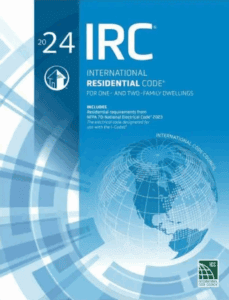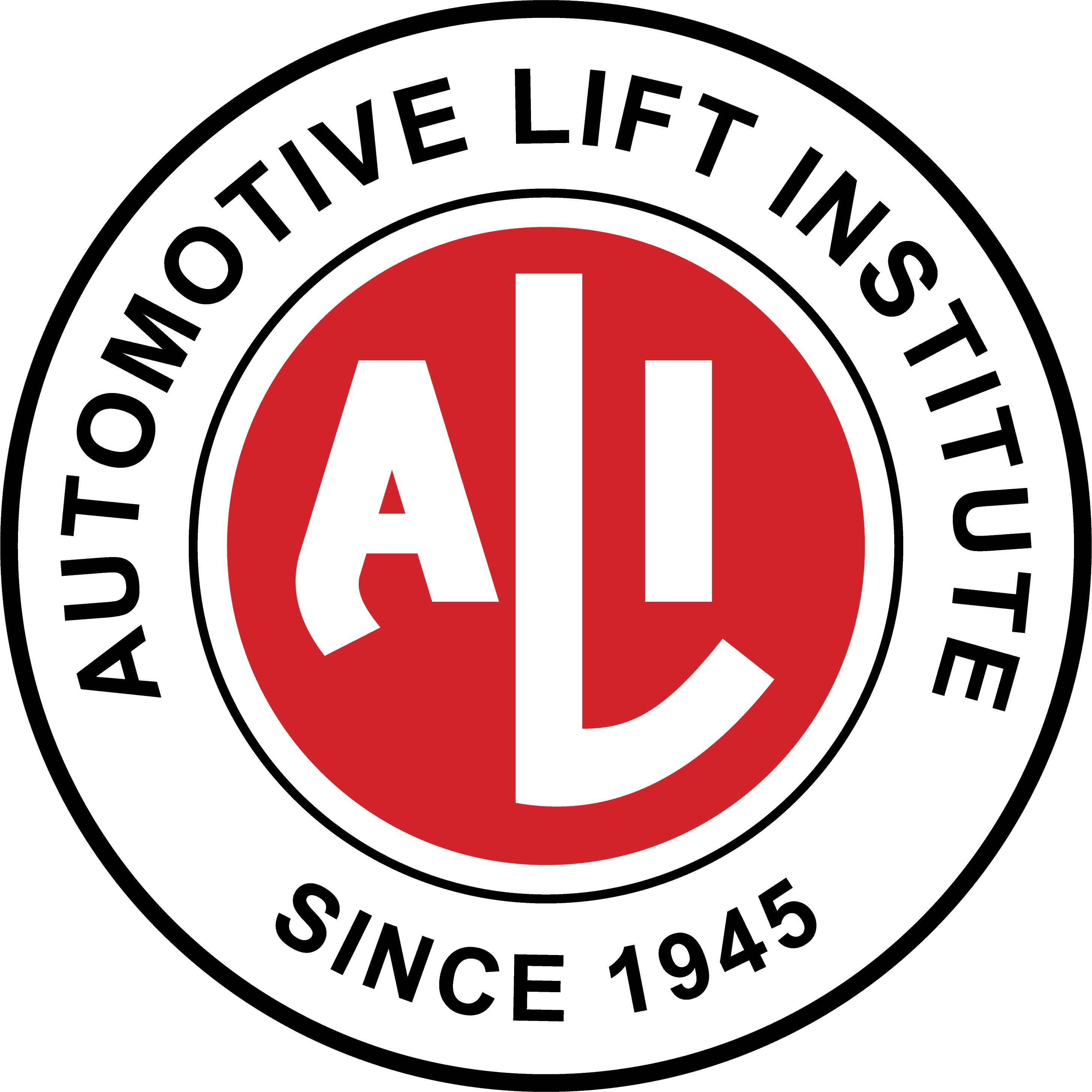2024 IRC Chapter 3: Automotive Lift Requirements
ALI Certification and the International Residential Code: What You Need to Know
The 2024 International Residential Code (IRC) requires any automotive lift in a residential setting to be listed and labeled in accordance with lift safety standard ANSI/ALI ALCTV “Safety Requirements for the Construction, Testing and Validation of Automotive Lifts.”
The only lifts listed and labeled to meet the ANSI/ALI ALCTV standard are ALI Certified Lifts. These lifts bear the ALI Gold Certification Label and are listed in the ALI Directory of Certified Lifts.
The same ANSI/ALI ALCTV standard has applied to lifts in vehicle service and repair facilities across North America for decades.
This means that no matter where they’re installed — at home or at work — any vehicle lift in the United States or Canada must be ALI Certified to meet building regulations.

What the New Residential Code Means for Homeowners and Installers
IRC is the building code covering single-family houses, duplexes and townhouses. It is in use or adopted in 49 U.S. states, the District of Columbia, Guam, Puerto Rico and the U.S. Virgin Islands. Apartment buildings, condominiums and other larger residential facilities, as well as commercial buildings and public facilities are covered by the International Building Code (IBC). Both building codes now require automotive lifts to be ALI Certified.
The 2024 International Residential Code covers residential car lifts and car lift installation in Chapter 3, Section R317 Garages and Carports, as follows:
R317.7 Automotive Lifts. Where provided, automotive lifts shall be listed and labeled in accordance with ANSI/ALI ALCTV.
R317.7.1 Installation Automotive lifts shall be installed in accordance with ANSI/ALI ALCTV, the listing and the lift manufacturer’s installation instructions. Automotive lifts shall not be installed within the habitable space of a dwelling unit.
This means that homeowners or anyone else interested in using automotive lifts — also called car lifts, vehicle lifts or hoists — in a residential setting must choose only ALI Certified vehicle lifts for building code compliance. This requirement applies to all lift types, whether they are permanently installed or mobile. Many lifts sold online do not meet the safety requirements of the ANSI/ALI ALCTV safety standard. They are not ALI Certified and are not acceptable per the IRC or IBC listing and labeling requirements. Building inspectors and other safety officials could tag-out such residential car lifts for violating IRC.
Car Lift Installation: Lift installers should not install residential car lifts that are not listed and labeled to meet the ANSI/ALI ALCTV standard — in other words, lifts that are not ALI Certified — because doing so would violate code requirements. When installing a lift, they must follow the guidance in the standard as well as the lift manufacturer’s installation directions. Furthermore, lifts should not be installed within the “habitable space” of the home. “Habitable space” is any part of the dwelling used for living, sleeping, eating or cooking. Installing only ALI Certified lifts helps ensure building code compliance.
Understanding the ALI Lift Certification Program
The ALI Lift Certification Program is the only accredited program in North America to independently test and validate that a car lift model meets all safety and performance requirements in the ANSI/ALI ALCTV standard. The only way to know that a lift model has been third-party tested and certified to meet this standard — and IRC building code requirements — is to buy an ALI Certified Lift.
Who performs lift testing in the ALI Program?
Two OSHA-accredited, Nationally Recognized Testing Laboratories are authorized to test vehicle lifts as part of the ALI Lift Certification Program. While lift manufacturers may test their own lifts as part of their product development process, these in-house tests do not take the place of independent, third-party lift testing and validation.
What is tested?
NRTL engineers test the lifts following the Program Procedural Guide and in accordance with the performance requirements of the ANSI/ALI ALCTV standard to ensure they are suitable for safe lifting. They evaluate:
- Structural integrity
- Proper operation
- Overload protection
- Additional listing requirements
- Labelling
- Safety and operator training materials
But lift testing and validation isn’t limited to the lab. A lift manufacturer’s authorized production facility must meet quality control requirements. This is verified by frequent surveillance and plant inspections.
How to Verify a Lift Is ALI Certified
Lifts that have been tested by one of the approved labs and found to meet all of the requirements outlined in the ANSI/ALI ALCTV standard receive an ALI Gold Certification Label and are listed in the ALI Directory of Certified Lifts. If a lift model is not listed in the directory, it is not certified and does not meet the code requirements of IRC and IBC. Note that certification is for an individual lift model, not the lift manufacturer. If a manufacturer has one ALI-certified lift, that does not mean that all of its lifts are certified.
Why Certification Matters: Safety, Compliance, and Liability
Unscrupulous lift manufacturers and importers who are unable to sell subpar, uncertified lifts to commercial customers take advantage of consumers who incorrectly assume that all lifts meet minimum safety standards. But a lift failure at home can be just as dangerous as one at work, resulting in serious injuries or death. When shopping for a lift, put safety first and demand a model that has been ALI Certified to meet ANSI/ALI industry safety standards.
Now that both the International Residential Code and International Building Code require all lifts in their jurisdiction to be certified, installing an uncertified lift is a code violation that can have significant consequences for homeowners, condo associations, building managers and others.
FAQs on International Residential Code and ALI Certified Lifts
Do all lifts sold in North America meet the requirements of the International Residential Code?
No. The online global marketplace is full of “bargain” lifts offering low prices and questionable safety. These lifts have not been independently third-party tested and ALI Certified to meet the ANSI/ALI ALCTV safety standard. Thus, consumers have no way of knowing whether or not these lifts are safe, and they do not meet building code requirements.
I want to put a car lift in my home garage. Does it have to be ALI Certified?
Yes. The International Residential Code requires that all lifts installed in a residential setting must be listed and labeled in accordance with ANSI/ALI ALCTV “Safety Requirements for the Construction, Testing and Validation of Automotive Lifts.” The only lifts listed and labeled to meet the ANSI/ALI ALCTV standard are ALI Certified Lifts. These lifts bear the ALI Gold Certification Label and are listed in the ALI Directory of Certified Lifts.
Does the International Residential Code apply to me?
The International Residential Code is in use or adopted in 49 U.S. states, the District of Columbia, Guam, Puerto Rico and the U.S. Virgin Islands. Check out the map.
